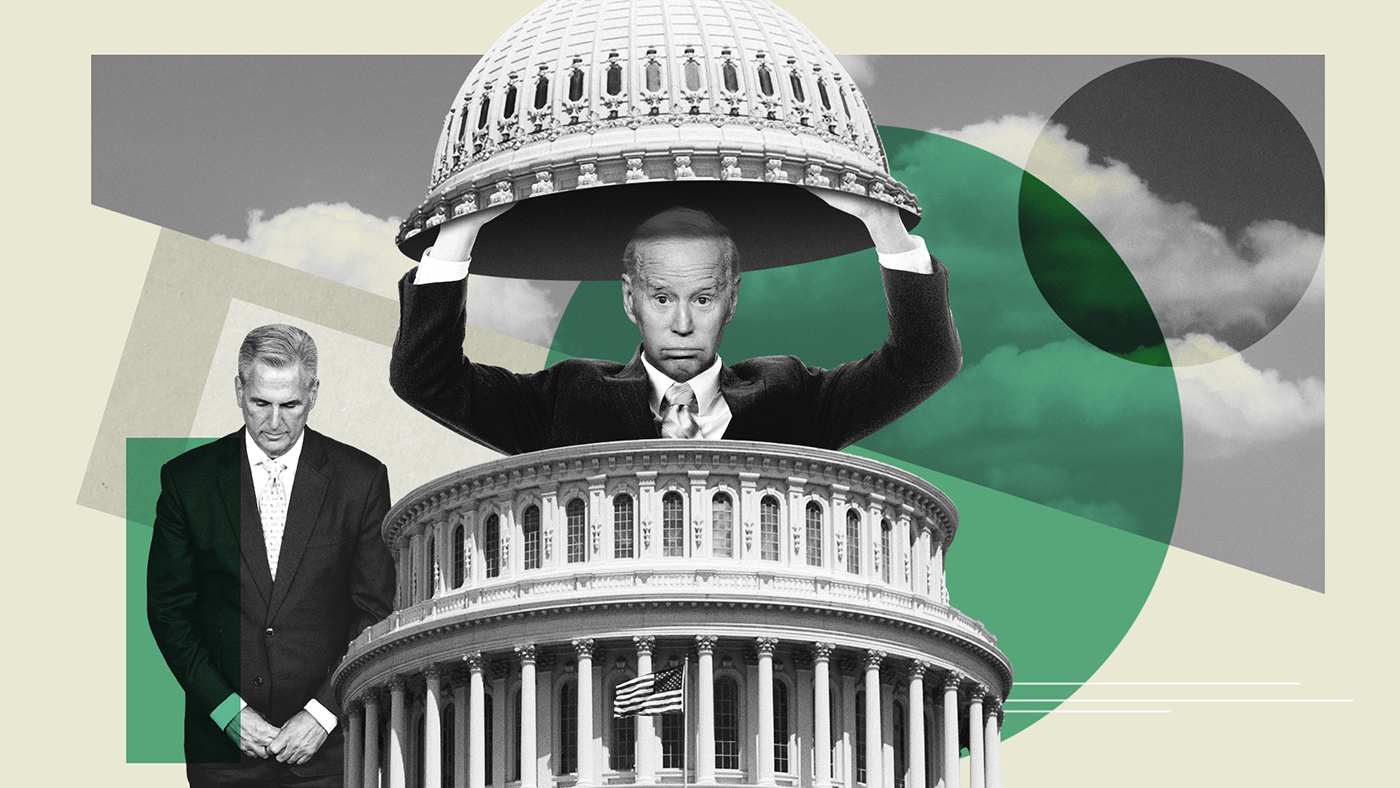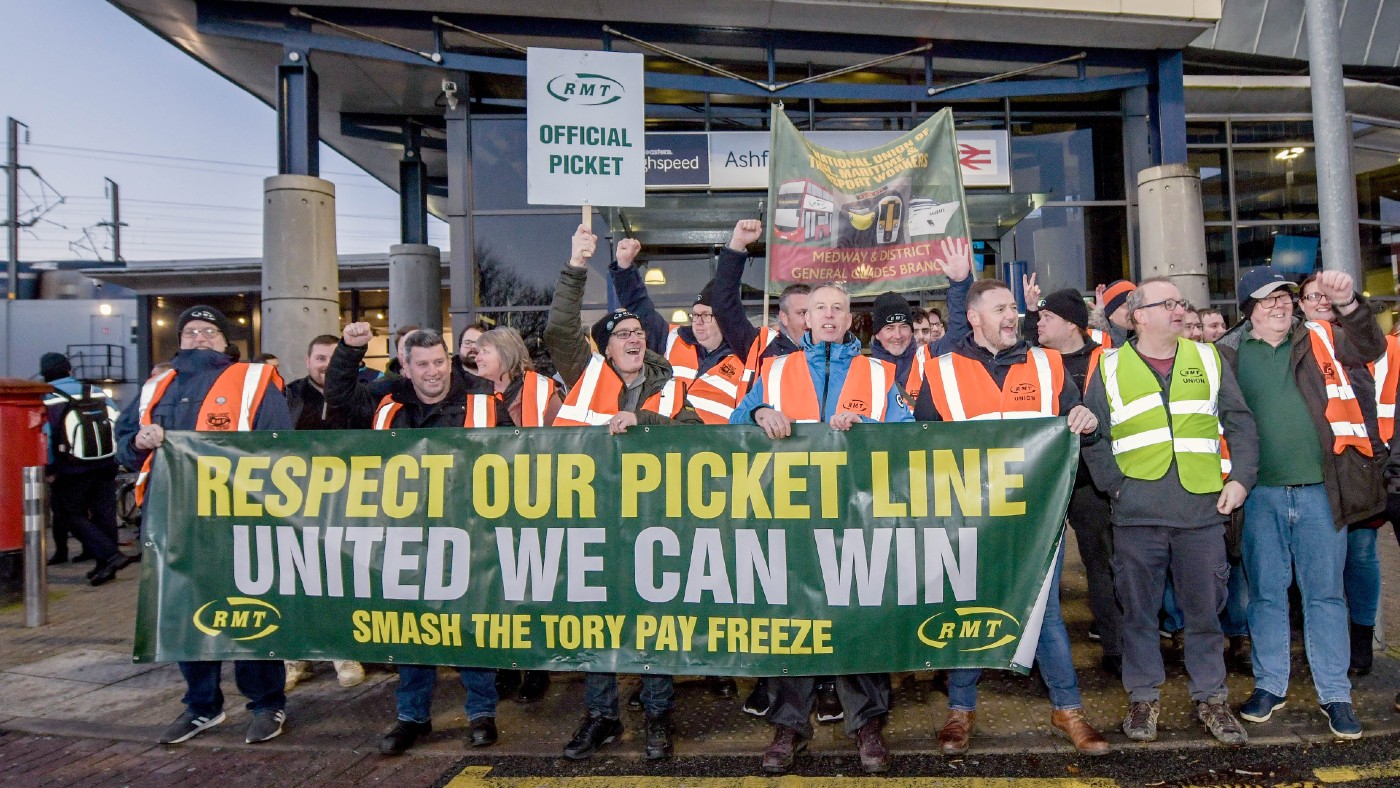What is the average UK household debt?
Austerity and stagnant wages blamed as borrowing hits record high

A free daily email with the biggest news stories of the day – and the best features from TheWeek.com
You are now subscribed
Your newsletter sign-up was successful
UK households have seen their debts to credit card firms, banks and other lenders soar by an average total of £886 over the past year alone, according to a new report.
And unsecured debt across Britain has risen by almost 50% since the 2008 economic crash, the analysis by the Trades Union Congress (TUC) has found.
Excluding mortgages, the amounts owed by British households rose to a combined £428bn in the third quarter of 2018 - equivalent to £15,385 per home.
The Week
Escape your echo chamber. Get the facts behind the news, plus analysis from multiple perspectives.

Sign up for The Week's Free Newsletters
From our morning news briefing to a weekly Good News Newsletter, get the best of The Week delivered directly to your inbox.
From our morning news briefing to a weekly Good News Newsletter, get the best of The Week delivered directly to your inbox.
The Times reports that unsecured debt as a share of household income now stands at a record 30.4%.
The total debt figure includes student loans, which were increased from £3,000 to up to £9,250 a year in 2012, but “does not include further debts incurred over Christmas”, adds The Guardian.
The TUC and other analysts are blaming the borrowing boom on the introduction of austerity measures amid stagnant wages.
The problem has “ballooned since people began to loosen the purse strings in 2013 after years of cutting back”, with the annual rate of consumer credit growth peaking at 10.9% in November 2016, says The Times.
A free daily email with the biggest news stories of the day – and the best features from TheWeek.com
“Weak wage growth has fuelled the problem, with families taking on non-mortgage debt as disposable incomes have fallen,” the newspaper continues. “Although wages started picking up last year, a decade of decline has eroded consumers’ buying power.”
TUC General Secretary Frances O’Grady said: “Household debt is at crisis level. Years of austerity and wage stagnation has pushed millions of families deep into the red. The Government is skating on thin ice by relying on household debt to drive growth. A strong economy needs people spending wages, not credit cards and loans.”
She added: “Our economy is not working for workers. They need stronger rights and bargaining powers.”
The TUC has also called for an increase in minimum wage levels to £10 an hour “as quickly as possible”, reports the BBC. The national living wage for workers aged 25 and over is currently £7.83 an hour, due to rise to £8.21 in April.
-
 6 of the world’s most accessible destinations
6 of the world’s most accessible destinationsThe Week Recommends Experience all of Berlin, Singapore and Sydney
-
 How the FCC’s ‘equal time’ rule works
How the FCC’s ‘equal time’ rule worksIn the Spotlight The law is at the heart of the Colbert-CBS conflict
-
 What is the endgame in the DHS shutdown?
What is the endgame in the DHS shutdown?Today’s Big Question Democrats want to rein in ICE’s immigration crackdown
-
 Can Nigel Farage and Reform balance the books?
Can Nigel Farage and Reform balance the books?Today's Big Question Nigel Farage has, for the first time, ‘articulated something resembling a fiscal rule’ that he hopes will win over voters and the markets
-
 Why are Americans using 'buy now, pay later' apps to buy groceries?
Why are Americans using 'buy now, pay later' apps to buy groceries?Today's Big Question A 'layaway program, but reversed'
-
 Kenya unrest: a warning for Africa's future?
Kenya unrest: a warning for Africa's future?Today's Big Question Youth-led anger over unemployment, debt and corruption reflects tensions simmering across the continent
-
 Why au pairs might become a thing of the past
Why au pairs might become a thing of the pastUnder The Radar Brexit and wage ruling are threatening the 'mutually beneficial arrangement'
-
 US debt ceiling: will Congress deadlock be broken?
US debt ceiling: will Congress deadlock be broken?Today's Big Question Political brinkmanship between President Biden and House Republicans could spell ‘economic calamity’
-
 Fastest UK wage rise in 20 years fails to match inflation
Fastest UK wage rise in 20 years fails to match inflationSpeed Read Widening gap between private and public sector wages is also stoking anger among striking workers
-
 The great lending game: IMF vs China
The great lending game: IMF vs Chinafeature Vulnerable countries face choice of restrictive ‘conditionalities’ or ‘debt-trap diplomacy’
-
 Why real wages have suffered ‘their sharpest fall on record’
Why real wages have suffered ‘their sharpest fall on record’Business Briefing Even pay rises aren’t preventing workers from feeling worse off – and that’s a big problem